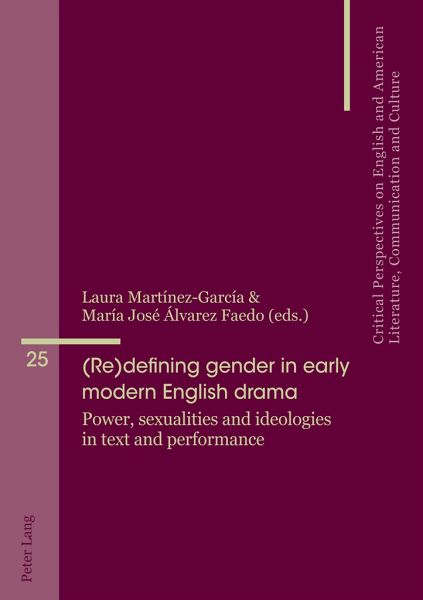
(Re)defining gender in early modern English drama
Power, sexualities and ideologies in text and performance
Herausgegeben: Álvarez-Faedo, María José; Penas-Ibáñez, Beatriz; Martínez-García, Laura
Versandkostenfrei!
Versandfertig in 6-10 Tagen
70,10 €
inkl. MwSt.

PAYBACK Punkte
0 °P sammeln!
Taking as its common thread the overtly theatrical nature of early modern society and its cultural and political manifestations this book studies dramatic texts, dedications, autobiographies, adaptations and performative practices, to prove that the boundaries between on and off stage performances of gender are blurred. Thus, the limits that separate theatre and life are highly permeable and the relations between both are bidirectional: the performativity of gender and identity is an idea that the theatre takes from and transfers to society. This concept is applied to a wide timeframe creating...
Taking as its common thread the overtly theatrical nature of early modern society and its cultural and political manifestations this book studies dramatic texts, dedications, autobiographies, adaptations and performative practices, to prove that the boundaries between on and off stage performances of gender are blurred. Thus, the limits that separate theatre and life are highly permeable and the relations between both are bidirectional: the performativity of gender and identity is an idea that the theatre takes from and transfers to society. This concept is applied to a wide timeframe creating a dialogue between different historical times and cultural backgrounds. Furthermore, the authors explore sexualities as written and performed by both men and women, offering a wider scope to determine whether and to what extent normative gender roles are being questioned, contested or reinforced.














